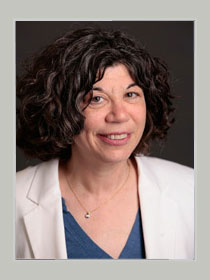
The Bill Lane Center for the American West, Stanford University

2007 Winner of the Risser Prize for Western Environmental Journalism
A team from the Sacramento Bee was also recognized with a special citation for a series about the California capital's vulnerability to flooding because of levee problems. "Tempting Fate" was written by Bee staff writers Matt Weiser, Deb Kollars and Carrie Peyton Dahlberg.
The award and citation were announced by James Bettinger, director of the John S. Knight Fellowships for Professional Journalists. The Knight Fellowships program and the Bill Lane Center for the American West co-sponsor the award. The prize will be formally awarded during the Society of Environmental Journalists' annual conference, which will be held this year at Stanford Sept. 5-9.
Pasternak's four-part series, published in November 2006, was the result of two years of reporting about how the mining of uranium had left behind wastes that sickened generations of Navajos on Navajo Nation land in Arizona, New Mexico and Utah. One of the judges characterized the series as "great writing, great history and investigative work; overall, a great story that hasn't been told."
Pasternak has worked for the Los Angeles Times for 23 years. In recent years her work has been honored by the Overseas Press Club, the James Aronson Award for Social Justice Journalism and the Goldsmith Award for Investigative Reporting.
The Sacramento Bee stories on the region's vulnerability to flooding were published over several months in 2005 and early 2006. The stories detailed how Sacramento, which sits at the confluence of two major rivers, faces the gravest flood risk of any metropolitan region in the country, yet has lower levels of protection than its counterparts, including pre-Katrina New Orleans.
Both entries can be read at the Risser Prize website: knightrisser.stanford.edu.
The prize is given in the name of James V. Risser, a two-time Pulitzer Prize winner and director emeritus of the Knight Fellowships program.
Judges of the contest were Jon Christensen, research fellow, Center for Environmental Sciences and Policy, Freeman Spogli Institute for International Studies, Stanford University; Raul Ramirez, executive director, news & public affairs, KQED Public Radio, San Francisco; Paul Rogers, environmental writer, San Jose Mercury News; Jerd Smith, reporter, Rocky Mountain News, winner, 2005 Risser Prize; and Steven Webster, retired senior marine biologist at the Monterey Bay Aquarium.
The Risser Prize was established in 2005 and is open to print, broadcast and online journalists writing about environmental issues in western regions of Canada, Mexico and the United States. The prize was established in recognition of Risser's outstanding journalism career and his leadership of the John S. Knight Fellowships for Professional Journalists from 1985 until his retirement in 2000. Risser is a former Washington bureau chief of the Des Moines Register, and he wrote frequently and incisively about environmental issues. He has had a particular interest in those issues as they affected the western United States.
In judging the awards, preference is given to stories about environmental issues that are distinctively Western. The judges placed a premium on stories that explained complicated situations, stories that exposed undiscovered or covered-up problems and stories with ramifications beyond the immediate dimensions of the issue being covered.
The Knight Fellowships program annually brings 12 outstanding mid-career U.S. journalists and as many as eight from other countries to study at Stanford in a one-year program. More than 700 journalists have studied at Stanford under the program since it began in 1966. James Bettinger is director of the program. Dawn E. Garcia is deputy director.
The Bill Lane Center for the American West is dedicated to advancing scholarly and public understanding of the past, present, and future of western North America through research, teaching, and reporting about western land and life in the United States, Canada, and Mexico.
Pasternak's four-part series, published in November 2006, was the result of two years of reporting about how the mining of uranium had left behind wastes that sickened generations of Navajos on Navajo Nation land in Arizona, New Mexico and Utah. One of the judges characterized the series as "great writing, great history and investigative work; overall, a great story that hasn't been told."
Texas Tribune, ProPublica

The Desert Sun and USA Today

CPI, InsideClimate News, The Weather Channel

The Seattle Times

The Sacramento Bee

High Country News

5280 Magazine

Seattle Post-Intelligencer

What Went Wrong?
The Seattle Times

San Antonio Express-News

The Los Angeles Times

High Country News



